High costs and recruitment are two major challenges of ports. Data shows that in China, the personnel expenses of truck drivers accounts for more than 50% of total transport costs. High-throughput ports requires 24-hour operation, which means that drivers need to work under high pressure. Moreover, due to aerial work and fatigue driving, ports have become accident-prone areas, which seriously threatens the safety of truck drivers and leads to labor shortage. Therefore, autonomous driving technology is urgently required in port transportation. With the trend of smart port, ports are becoming a new battlefield for autonomous driving.
At Khalifa Port in Abu Dhabi, UAE, a fleet of autonomous heavy trucks withstands the high temperature of over 40°C (104°F), maintaining 24-hour operations. This fleet is equipped with multiple sets of industrial-grade sensors, which have high precision positioning and identification functions, and can achieve 24-hour uninterrupted operations without the need for complex large-scale infrastructure renovations at the terminal. It not only liberates manpower from high-intensity and high-risk driving work, but also achieves higher precision and efficiency transportation. Built by Westwell, this fully autonomous heavy-duty Q-Truck fleet has been commercialized in Thailand, the United Arab Emirates and other places.
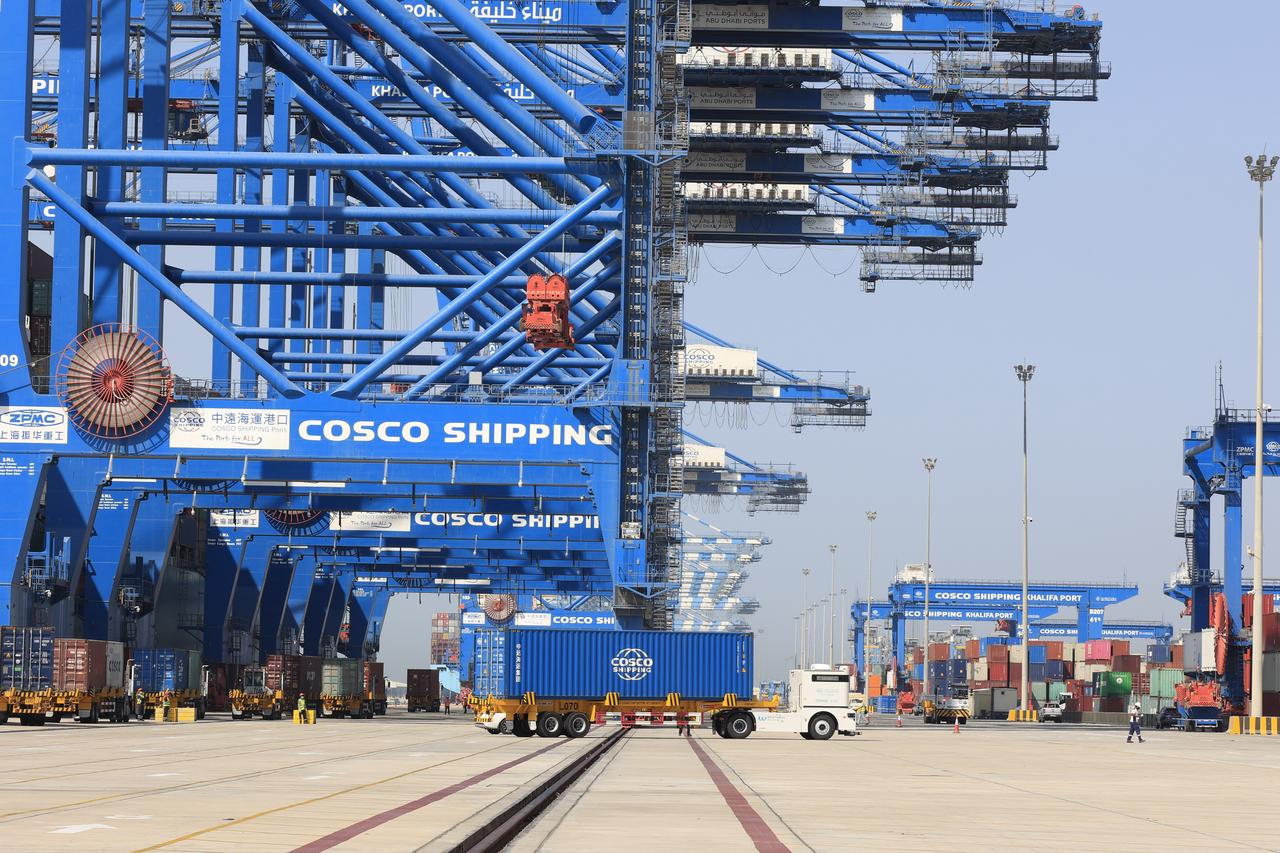
As one of the first self-driving enterprises in China, Westwell has applied autonomous driving technology in logistic resources allocation and transportation network with more than 90 clients around the world since 2016, creatingmany industry firsts : released the world's first unmanned truck for port operation with Zhuhai Port, helped ZPMC to create the world's first autonomous straddle carrier, independently developed the world's first fully autonomous electric heavy-duty Q-Truck and multi-use unmanned heavy-duty mobile platform Qomolo ONE, etc.
Empowering Port with Intelligent Technology
Data of Ministry of Transport shows, by 2021, the container throughput of Chinese ports has reached 280 million TEU, achieving a year-on-year increase of 7%; the cargo throughput reached 15.55 billion tons, achieving a year-on-year increase of 6.8%. Due to increasing throughput, costs of large-scale ports urgently need to be reduced while improving efficiency. Therefore, autonomous port transportation becomes one of the solutions.
The annual salary of a truck driver is about 100,000 - 150,000 yuan. A medium-sized port needs to be distributed with 200 trucks, with four drivers of each truck, which will cost about 90 million yuan a year. With the expenses being cut, the operating costs can be greatly reduced.
“The implementation of autonomous driving technology in port will greatly reduce personnel costs and solves the problem of driver shortage,” says Steven, Director of Intelligent Driving Products of Westwell, “on technical level, port scenarios have features such as limited areas and controllable rules, making it easier to realize the commercial implementation of autonomous driving technology.”
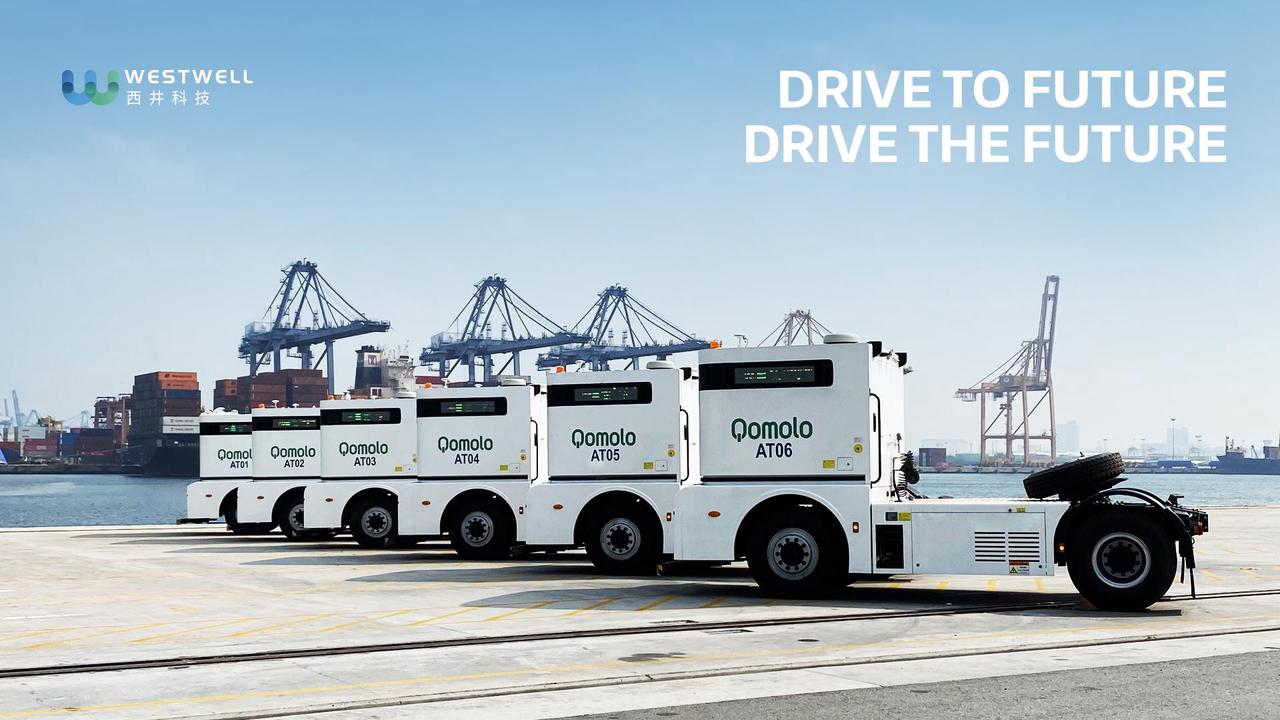
According to CICC, if only self-driving upgrades of container vehicles within a narrow range of terminals being considered, the applications of autonomous driving technology for container trucks in ports have the market scale of 10.8 billion yuan per year, and the market scale of trucks dispatching software solutions is 1 billion yuan per year. Westwell has independently developed vehicles such as WellOcean (the AI-driven smart port solution) and Qomolo (new energy autonomous driving solution), which have been implemented in more than 90 ports and logistics parks around the world.
In addition to own-brand Q-Truck, the autonomous straddle carrier which empowers ZPMC, and the autonomous driving system based on ART and IGV models for Tianjin port and Xiamen port, Westwell has more than 100 autonomous driving vehicles in the world. Furthermore, its business will expand to Sweden, Denmark, Malaysia, Mexico and other places. In 2022, Westwell will also start to provide battery-swap service for autonomous driving vehicles in specific scenarios around the world.
Breaking Out of Port Transportation Dilemma
The excellent performance of Westwell and the speed-up layout of port scenes result from sustained investment in research and development, insights and continuous improvement of infrastructure.
First, at the level of autonomous driving perception, Westwell creates the solutions used multi-sensor fusion to realize the precise operation of vehicles. Although the driving scenarios of ports are relatively closed, the technical difficulty is quite high. For example, the positioning accuracy of vehicles on open roads generally requires about 20 cm (7.8 inches) in the longitudinal direction, but in ports, heavy trucks also need to align and interact with large machines, requiring the positioning and control accuracy being 2 cm (0.78 inches), which is 10 times harder to achieve.
Unlike open roads, the containers are hoisted back and forth. After a period of time, unmanned trucks may be placed in a new driving environment. Moreover, huge container ships and metal containers may interfere with GPS signals and cause the increase in error of high-precision positioning. Therefore, Westwell creates multi-sensor fusion solutions to ensure that the trucks can cope with various working conditions and finish tasks safely and efficiently.
Furthermore, Westwell also provides full stack development for specific scenarios, including HD map construction, vehicle scheduling system, multi-field sensing engine, self-developed road test V2X sensing computing system, WellSim autonomous driving and customer scenario simulation platform, autonomous driving software system Q-Pilot, autonomous driving chassis AVCU, steer-by-wire Q-Wire, etc.
“In port scenarios, the enterprise is challenged with the overall strength, such as providing full stack solution and operational capacity. As a full stack solution provider, we have the deeper understanding of port operations and stronger market competitiveness,” says Steven.
High-Quality Perception System Empowers Intelligent Upgrade of Ports
The full-stack solution of Westwell meets the technical requirements of autonomous driving trucks applied in port scenarios. However, the complex and irregular road conditions require a reliable sensing system. Westwell chooses Hesai Technology's XT lidar, featuring high-precision, blind range of zero and cost-effective, providing strong environmental perception for autonomous driving trucks.
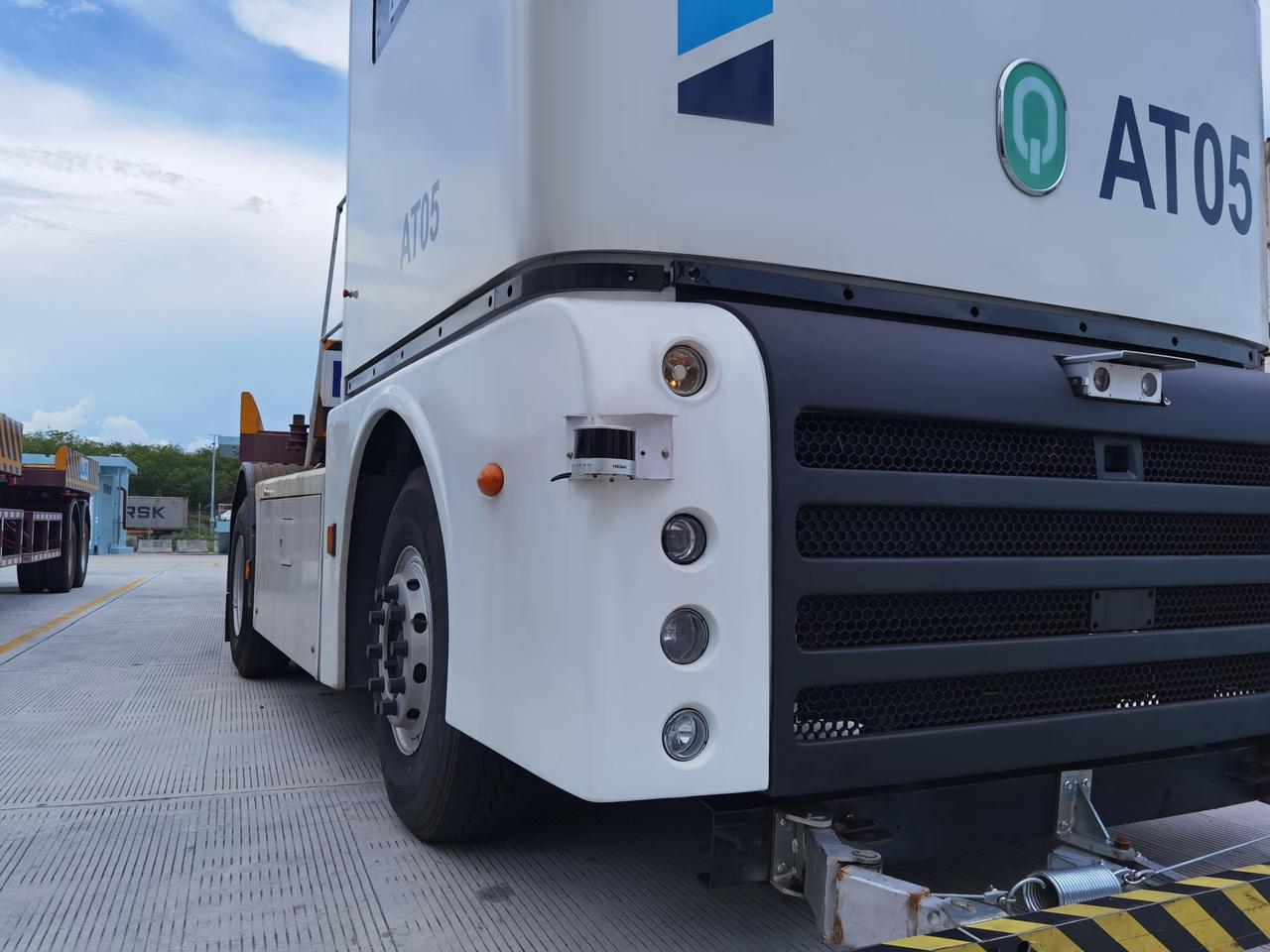
Large trucks in ports need accurate perception ability to move around within the error range of a few centimeters. Compared with typical 16-channel mid-range lidars, XT32 has a higher laser count of 32 channels, which doubles the resolution. It also features high ranging precision (1σ) of 5 mm, taking a big lead in its class, exporting high-quality point cloud data, which is beneficial for algorithm processing.
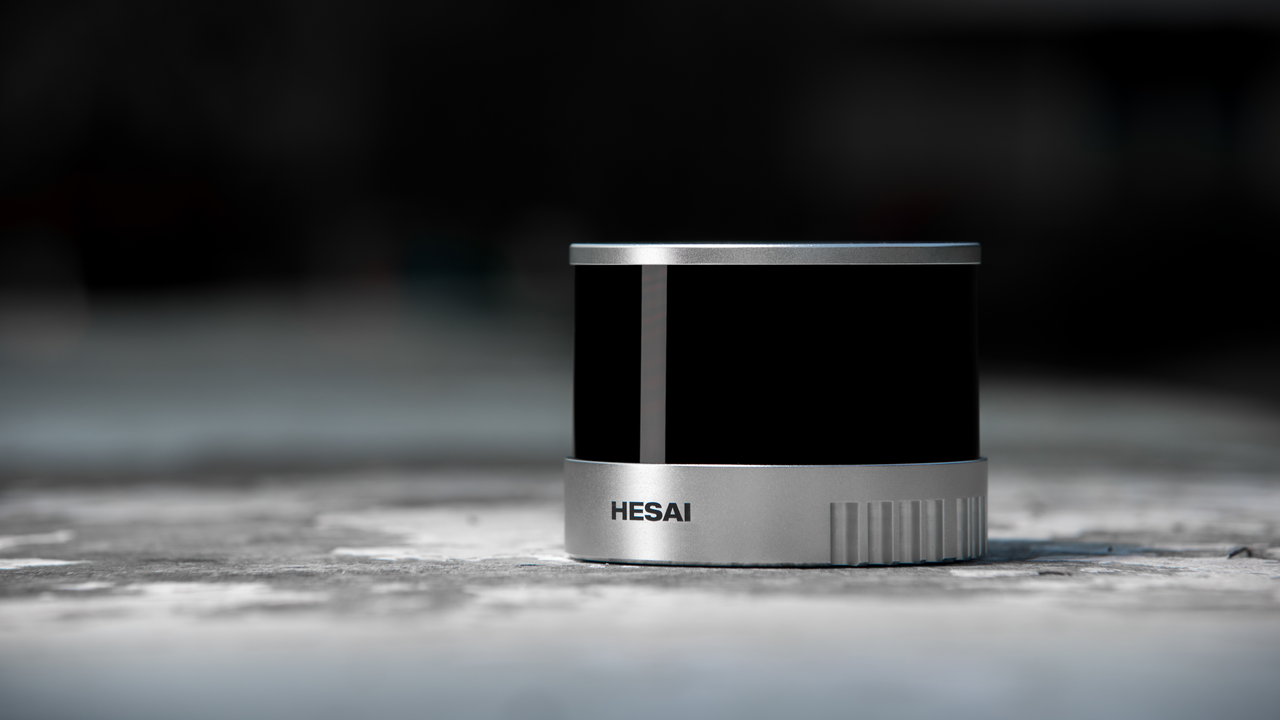
XT series achieves “blind range of zero” through innovations of optical path transmit-receive system. Even with an object clung to the lidar shield, it can accurately capture the object in the near-field area of the lidar, making it possible for self-cleaning test and block detection, helping the vehicle to complete precise counterpoint and interaction in the port scene.
In the actual operation of ports, vehicles are faced with problems such as frequent vibration, salt corrosion and frequent start-stop, causing large impacts for the equipment. Therefore, the stability and reliability of hardware equipment are critical. Furthermore, XT’s laser transmit-receive system is based on Hesai’s proprietary ASIC technology, which greatly improves performance, lowers the costs while ensuring the consistency and reliability of lidar products.
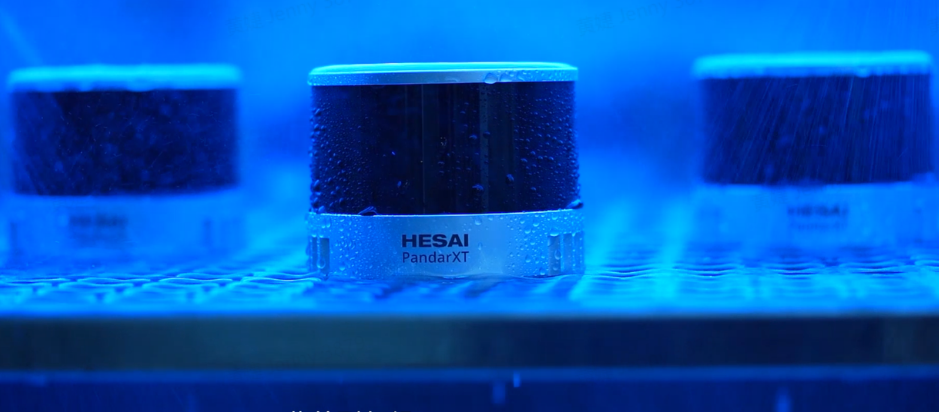
Besides, Hesai XT adopts redundancy design and independent configuration of multiple systems to greatly reduce failure probability and maintenance costs, passing dozens of reliability tests and has a designed service life of over 30,000 hours under typical conditions.
“Hesai’s lidars show excellent comprehensive performance with fantastic after-sales service, well meeting customized functional requirements. The strong development capability of Hesai enables its continuous optimization and upgrade of lidar products.” says Harrison, Vice President of Strategy and Development Center of Westwell.
Hesai XT series has passed the test of port scenarios and won the trust of Westwell. “In the future, we will continue to work with Hesai to further explore the applications of autonomous truck scenarios, providing customers with high-quality products." says Harrison.
Copyright © 2024 Hesai Group. All Rights Reserved.

